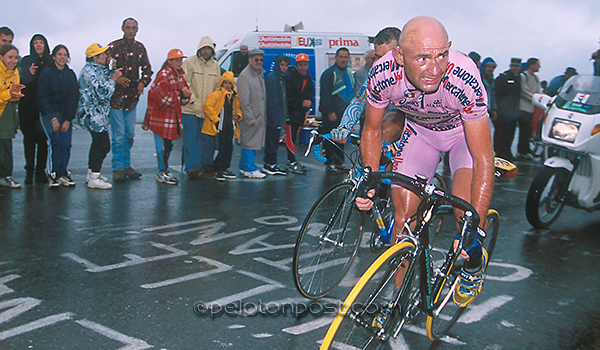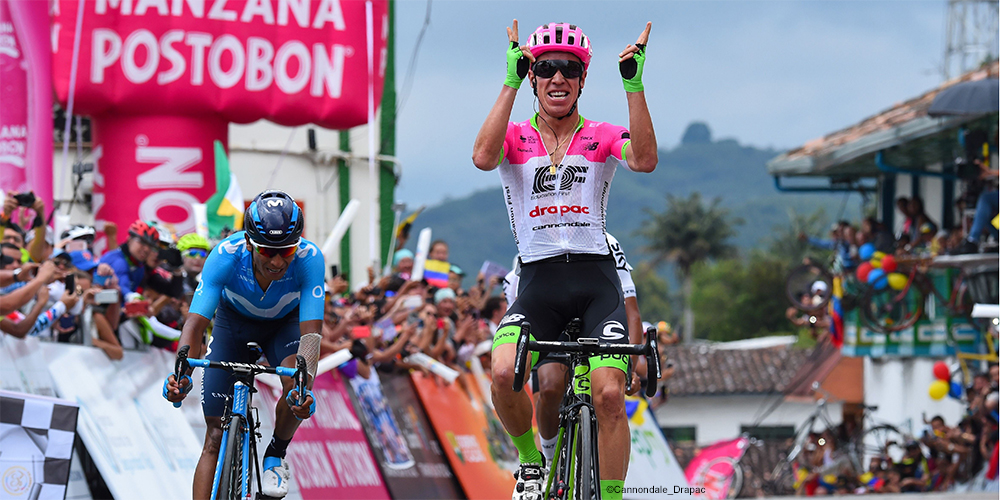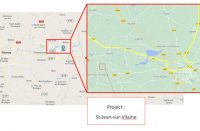This piece was written by Lance Armstrong and appeared on the web today.
“American remembers great rivalry
I’ll never forget when I heard about Marco’s passing. I was at home in Girona when a message came through. Complete shock is the only way I can sum up how I felt.
Ironically, and I remember it like it was yesterday, earlier that day I was having a conversation with Michele Ferrari. He and Marco didn’t work together, but the two of them were friendly and I asked him, ‘hey what’s going on with Marco these days?’ Everything had seemed to slow, and there wasn’t much news. Michele told me he hadn’t heard good reports lately and he was concerned how things might end up.
That night, I received a message from Italian journalist Pier Bergonzi that read “Pantani is dead”. I sat there alone, and thought “Fuck!”. The climber I’d battled on, and off, the bike for so long was dead.
It’s nearly ten years since his passing but I still remember my very first race with him. It was at the Tour of Mexico, in 1994. I was there with Motorola and Carerra were there with Chiapucci and Pantani too. I have to be honest I didn’t notice him much at the race. He wasn’t a team leader and, although he was seen as a promising climber, he’d not made a huge impact on my life yet.
Of course, I took notice when he was second at the Giro later that year. That’s when the whole world sat up and took notice. There was this whole plot between Evgeni Berzin and Miguel Indurain and in the middle of that was Pantani, who finished second and won back-to-back stages. He stole the show and he damn near stole the race as well. I wasn’t a GC rider at the time, so I didn’t give it a lot of thought and I wasn’t fixated on the Giro, like I later would be with the Tour.
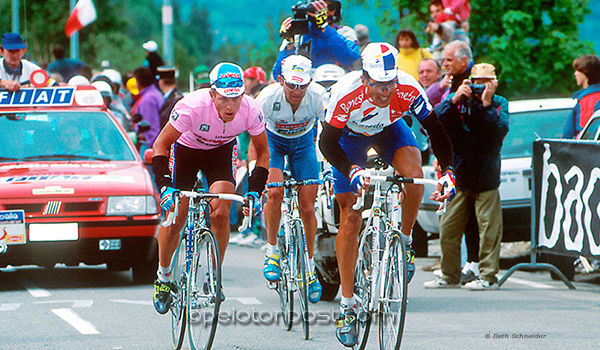
Marco had a lot of style as a bike racer. He was a complicated enigma, who had a lot of character, a ton (this is how yanks spell this word) of charisma and people were compelled by him and the way in which he flew up mountains.
On the bike he was a quiet guy though. There weren’t these huge gestures or flamboyance, like you had with other Italians, because Marco was a rider who would do his talking when and where it matted. On the climbs, out of the saddle, and with the bunch busting a gut just to stay with him.
I remember how he used to be surrounded by his entire team in the peloton, almost to the point where it was annoying. We did some of that too, but his teammates were very protective of him and if you came anywhere near him you’d get the wrath of his entire squad. But style-wise he was smooth, efficient of course, and just so, so explosive. He had the ability to detonate a race and, as a rival, as another member of the peloton, you had to accept and respect his ability.
Forget the star aspect. Pantani wasn’t a star, he was more like a rock star. He had the aura, he had the following and he was huge. As an American coming over and playing a European sport, I was in a different position. I was on the other side, not part of the ingrained culture and seen by some as the outsider. Pantani was right at home, he was on his turf and he was the main man. If I was the carpenter, then he was the artist. He had all the panache in the world, all the panache you could fit into a small climber, and I, if I’m honest, didn’t have that.
We went up against each other in the Tour, in 2000, and while everyone remembers days like Ventoux, there was a bit of a back-story there too. In 1998, Pantani trounced the field. He’d beaten Jan [Ullrich]. However, in 1999 after I won, and going into 2000, I’m sure Marco, Jan, the press and the fans all thought that the ’99 race wasn’t well attended. The last two winners hadn’t been there and maybe my win had been a fluke. Heck, even I had some doubts, some thoughts that ’99 would be my only shot.
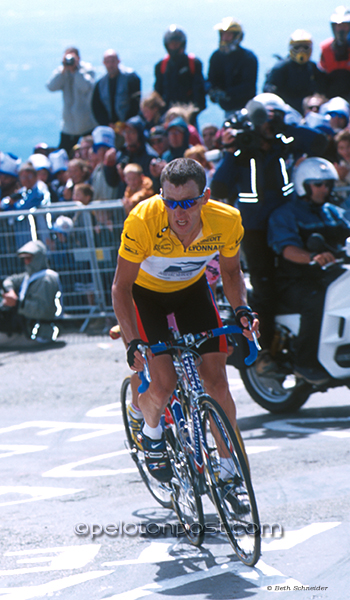
Pantani on Armstrong’s wheel near the top of Mont Ventoux
I didn’t know what was going to happen in that race, but I still trained, I still prepared and I came to the start as ready as possible. We didn’t have a specific plan for Marco. We knew his strengths and we certainly knew mine. We had to wait until the first climbs to see how everyone stacked up. So we waited, and waited, and then we reached Hautacam. I can’t remember every detail but there was me, [Alex] Zulle, Pantani, and maybe a couple of others at the head of the race. I pulled, Marco pulled, we were all trading off, and then I went to the front. Johan [Bruyneel] came onto the radio and told me Marco had been dropped. Everyone knows the rest but Marco, with his spirit to fight, wasn’t finished.
He had that anger inside him that meant he fought for everything. Maybe it was a bit of a Napoleon complex, but he was a real fighter.
Everyone knows that we didn’t see eye-to-eye on a lot of things. We didn’t say nice things to each other, especially in the press. If I’m honest, we didn’t particularly like one another, but I always felt that the sport was a better place with Marco in it.
Perhaps, if we had met under different circumstances, we would have gotten along. If it wasn’t for the language barrier, some of the rivalry and some of the negative things we said about one another, I think we could have been friends.
We had a reconciliation of sorts at one point. When we were feuding, it got to the point where things were becoming too much for me, for him and for everyone. We decided to sit down face to face, man to man. So one night in Murcia, in 2001, Marco, [La Gazzetta dello Sport’s Pier] Bergonzi, and Gianpaolo Mondoni, who rode on his team and spoke English, sat down for tea. I don’t know if Marco really wanted to be there that much, but it was pleasant enough. Unfortunately, despite our face-to-face, the relationship remained the same. This would be the last time we ever spoke face to face.
So much of that hostility came down to what happened on the Ventoux in 2000. I’m not here to glorify anything, everyone knows what happened that day, but we were at the head of the race and trading pulls. I told him, in my shitty Italian, ‘you can have the win’. He thought I was saying ‘you need to go faster’. My Italian was so bad though, I could have been saying anything, but we were going plenty fast enough, believe me. What happened that day didn’t help things, and from there on things were never the same.
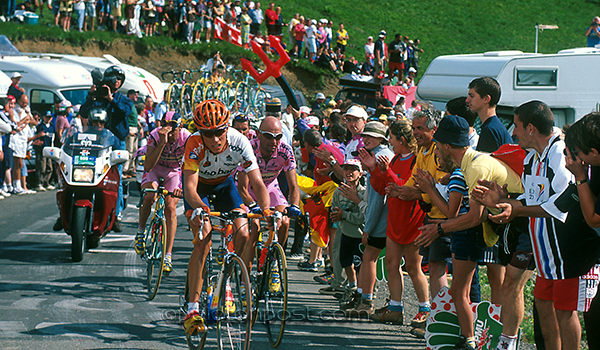
Pantani suffering on Col de Joux Plane in 2000 Tour
From my point of view, he said a few things about ’99, saying it might have been a fluke, but having said that the list of people in that queue were a mile long. There were times, on my part, when I became too wrapped up in the rivalry, too wrapped up in the war of words.
If I could go back I would handle quite a few relationships differently and the one with Marco is no different. My fundamental mistake was that while it was fine to be competitive with your rivals on the bike, when you step off the bike we’re all humans and we all deserve to be treated with respect. I never switched off and while that killer mentality worked on the bike, it didn’t work well when you’re having a coffee or having a press conference. That was my mistake.
I don’t blame the doping in cycling for his death. I think he was an incredible personality, who was also flawed – like myself. To some extent the doping had made him who he was, but then again we could have all said that. The reality is that the fame and the speed at which he lived life was what killed him. He simply couldn’t keep up with it.
Later on, when you get off the bike that’s when you need to be careful. Fame is fleeting and life after being at the top is never the same. Pantani suffered greatly. He went from being a god in Italy to being someone who lost so much. People don’t look at you the same, after something like that, and you’ve got to be prepared for the day when you’re just a dude walking down the street and no longer the star. I think about that a lot, but he wasn’t ready for that and he wasn’t ready for what Italy showered him with – both before and after his problems. He was a god to them and it was that pace that ultimately undid him.
How fans should view Pantani nowadays is a complex question, but one that needs a certain level of context and understanding, before reflection. I think that if you watch those performances you should view them with great appreciation and great admiration. When you name all the other winners from those days, all the riders, he was geared up in just the same way and he still fucking won. That’s going to frustrate some people to hear, but you have to remember that he came into a program and that was that. He wasn’t going to change the system and everyone in that peloton that he beat played by the same rules.
Marco is no longer here and it’s been a long and difficult ten years for cycling since. Marco’s passing is cycling’s loss both because of the memories he gave us and because he could have helped the sport too. I don’t know what Marco would make of the state of cycling today. He was a strong character and someone with soul and it was a privilege to do battle with him.”
